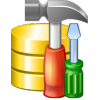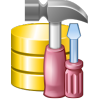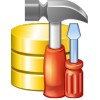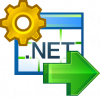Online Documentation for DB Extract for InterBase/Firebird
Step 6 - Setting up extraction options
At this step you can set the advanced extraction parameters and define query options for data extraction.
Metadata options
![]() Generate "CREATE DATABASE" statements
Generate "CREATE DATABASE" statements
Check this option to add the CREATE DATABASE statement(s) to the extraction script.
![]() Generate "DROP" statements
Generate "DROP" statements
Check the option to add the DROP statements for the extracted objects.
![]() Generate "CONNECT DATABASE" statement
Generate "CONNECT DATABASE" statement
Check this option to add the CONNECT DATABASE statement to the result script.
![]() Password in "CREATE" and "CONNECT" statements
Password in "CREATE" and "CONNECT" statements
Enable the option to include password in these statements to the result script.
![]() Set generators
Set generators
Enable the option to add the statement that sets current generator values.k
Check the appropriate options to ![]() Include object descriptions or trigger messages to the result script.
Include object descriptions or trigger messages to the result script.
![]() Extract privileges
Extract privileges
Tick off the option if you want the privileges (permissions on the objects) to be extracted.
![]() Extract dependent objects
Extract dependent objects
This option determines the usage of dependencies between objects in the extraction process.
![]() Extract dependent tables data
Extract dependent tables data
Enable this option to extract the data of the dependent tables to the result script.

Data options
Records in block / ![]() Insert "COMMIT" after each block
Insert "COMMIT" after each block
These controls allow you to define whether the COMMIT statement is inserted into the script or not, and to define the number of records in each block to be supplemented with this statement.
![]() Delete existing records before insert
Delete existing records before insert
Generates the DELETE FROM statements before the INSERT INTO statements.
Data query options
This grid allows you to specify additional options for the SELECT statements used for data extraction.
Database name
This column represents the list of the databases containing the tables selected for data extraction.
Table name
This column contains the names of the tables.
Table data filter
Here you can specify the WHERE clauses for data extraction from each of the tables.
Note that you can define data query options not only for a single table, but also for multiple tables at a time by using corresponding items of the context menu of the Data query options grid.

When you are done, press the Next button to proceed to the next step of the wizard.


































































